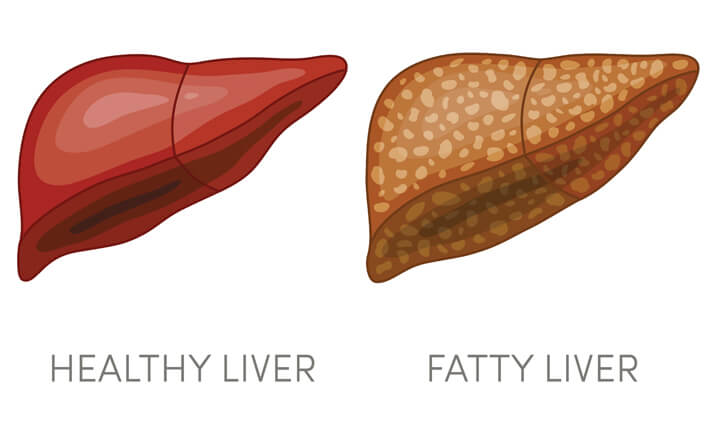Fatty Liver Disease
Fatty liver is also known as hepatic steatosis. It happens when fat builds up in the liver. Having small amounts of fat in your liver is normal, but too much can become a health problem.
Your liver is the second largest organ in your body. It helps process nutrients from food and drinks and filters harmful substances from your blood.
Too much fat in your liver can cause liver inflammation, which can damage your liver and create scarring. In severe cases, this scarring can lead to liver failure.
Assessment of fat deposition in liver is done by sonography like techniques like liver elastography or fibroscan and by certain blood parameters. It is important to detect damage early so that we can take measures for reversal. Reversal is possible in early stages of the process hence early detection is important. That’s why we advise patients to take early consultation with hepatologist.

Causes of fatty liver
Fatty liver develops when your body produces too much fat or doesn’t metabolize fat efficiently enough. The excess fat is stored in liver cells, where it accumulates and causes fatty liver disease.
This build-up of fat can be caused by a variety of things.
For example, drinking too much alcohol can cause alcoholic fatty liver disease. This is the first stage of alcohol-related liver disease.
In people who don’t drink a lot of alcohol, the cause of fatty liver disease is less clear.
One or more of the following factors may play a role:
- obesity
- high blood sugar
- insulin resistance
- high levels of fat, especially triglycerides, in your blood
Less common causes include:
- pregnancy
- rapid weight loss
- some types of infections, such as hepatitis C
- side effects from some types of medications, such as methotrexate tamoxifen, amiodoroneand valproic acid
- exposure to certain toxins
Certain genes may also raise your risk of developing fatty liver.


